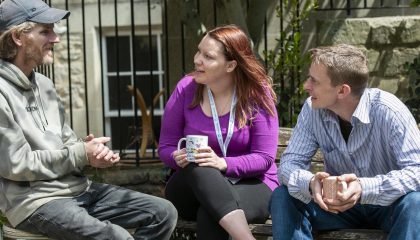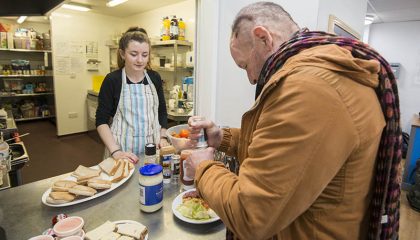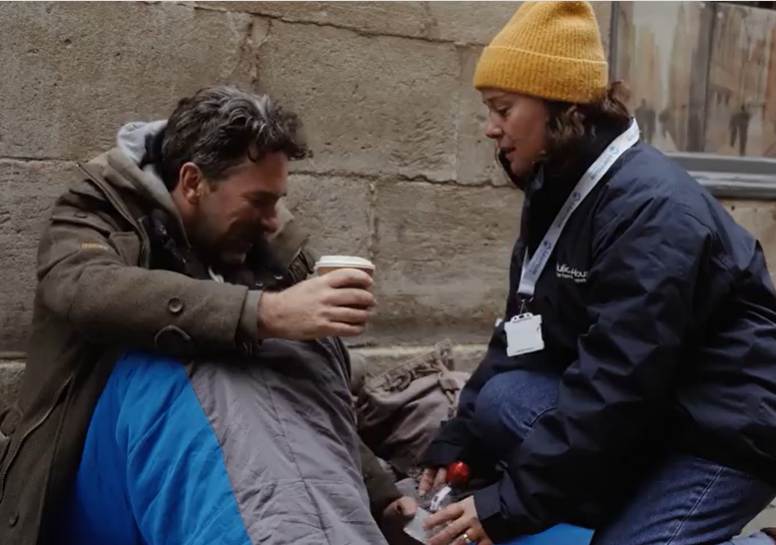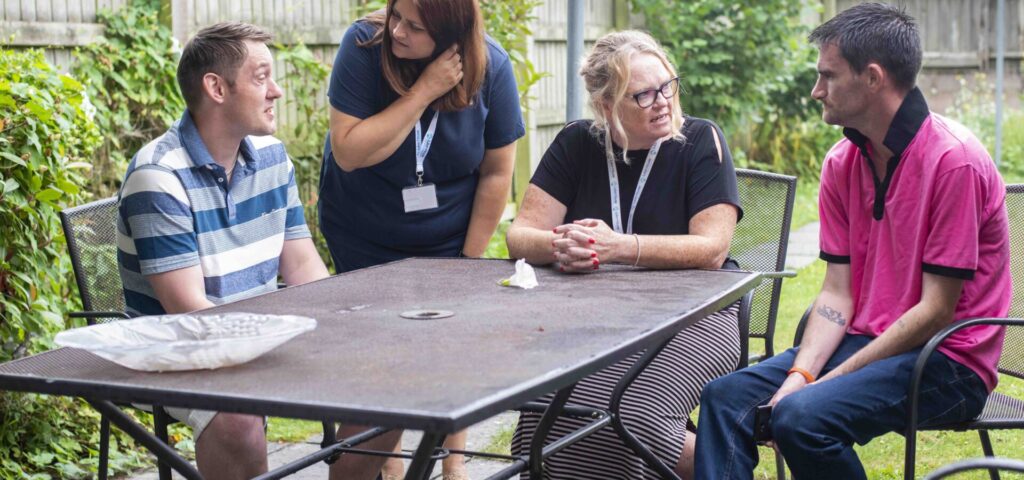
This month we are highlighting our Addiction and Recovery Service. Some of the clients we support at Julian House have either past, or present addictions. These are mostly drugs or alcohol related, but can also be less commonly talked about, such as gambling or sex addiction. Trauma and learnt behaviours can often be a catalyst for addiction, though this is not always the case.
Growing up around addiction can be hard on the individual, they may not have had parental guidance, or a role model that was able to provide a safe environment for them. Sometimes, they are not taught the right coping skills, or nurtured or supported.
Here at Julian House all staff aim to be the one constant in our clients’ lives. To empower and encourage them to take control of their future, to support and guide them on their journey.
We spoke to Jodie from in our Substance Recovery Team to find out more.
How does Julian House help those with addictions?
We have a dedicated recovery service based in Wiltshire, where skilled recovery workers lead dry house based accommodation and support up to 15 clients through abstinence. The priority is to focus on the addiction presented, whilst they reside in safe accommodation, in a family felt environment. Some of the support on offer to our clients includes, mental health, clinical reviews, independent living skills, bills and budgeting, meaningful activities, and volunteering. The end goal is to eventually help them to integrate back into society feeling confident, free from drugs and alcohol and in control of their own future. There is no set time on recovery, and we ensure we are client led, compassionate and understanding.
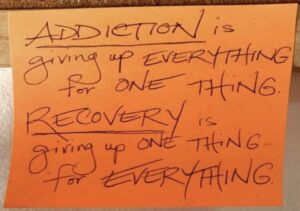
What is addiction?
We do not have a perfect answer to this, it is not a physical health condition; it’s categorised as a mental health condition but is not always treated as one. It is almost a disease without an answer, or a disease without a home. It is often treated more like a personal choice, or an individual’s moral failing rather than an illness.
“I come from quite abusive background my dad was alcoholic and he was quite abusive to my mum, which probably lead me into crime and addiction.”
Why is addiction seen with our client’s?
There is no definitive answer to why someone enters addiction, many clients will share when it first begun for them personally, one identified pattern is a pinnacle moment they can recall, usually around trauma – neglect, family members own addiction, feeling unwanted or lost, not able to find a place in society and wanting to escape reality. Addiction can occur in a multitude of ways, relationship breakdown, job loss, grief, abuse, grooming and not being given the right life skills to understand your own emotions.
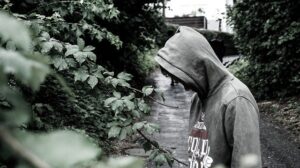
What challenges do clients face in accessing the support they need to overcome their addictions?
Guilt and not feeling they can trust anyone, resigning themselves to the fact they are worthless. “What’s the point”, “No-one cares” is something we hear a lot and that saddens us. Not all clients know of services that can support with addiction, and it is not easy to walk away from all you know at that time. It takes a great deal of strength to face addiction and clients are scared to have to face life without drugs or alcohol as it will no longer mask those feelings and trauma they were running from. When someone does start to access treatment, it is incredibly hard to abstain, it can make you feel so unwell, not only physically, but mentally too. Having to learn new coping mechanisms for everything going on in your life is no mean feat, clients share it is like having the worst flu and knowing there is something you can take that will make it all go away instantly, yet not being able too.
“For me is to be around people that are in the same situation, and that’s the really important thing”
What are the most common addictions you support clients?
People tend to associate addiction to heroin and crack, yet alcohol has a huge part to play in addiction. Of the 602,391 dependant drinkers currently in the UK, only 18% are receiving treatment, alcohol is the biggest killer within addiction (Alcohol Change UK). Prescribed medication is a huge concern for recovery specialists, this can include Pregabalin, Diazepam, Quetiapine and the detox plan to reduce clients off these are horrifying. Cannabis is seen as a less concerning drug, yet the psychosis we see from clients using this and the mental health conditions as a result, is extremely high.

How do prescriptions support clients?
If it was as easy to say stop using, stop being an addict, then addiction would have been cured the moment it all begun. Those that are in addiction need medical support to help with the extreme side effects, Opioid addiction is treated with either Methadone, or Buprenorphine which helps the body to wean itself off the drug. Alcohol dependency also requires medication to detox, and both must be treated safely by a professional, as it can be very dangerous and even cause death.
“Thanks to Julian House, I’ve managed to get out of a chaotic environment”
If you, or anyone you may know could benefit from the support Julian House offers, you can find our referral form Supported Housing Substance Misuse | Julian House | Wiltshire, or contact us via email – wiltshiresubstancemisuse@julianhouse.org.uk.

